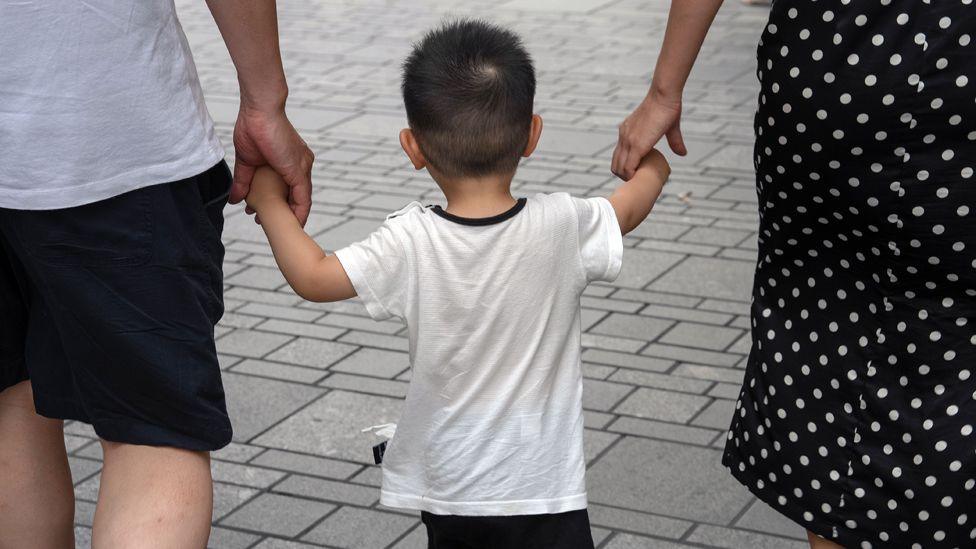Uncertainty for families as China ends foreign adoptions

- Published
China has announced that it is ending the practice of allowing children to be adopted overseas, bringing uncertainty to families currently going through the process.
A spokeswoman said that the rule change was in line with the spirit of international agreements.
At least 150,000 Chinese children have been adopted abroad in the last three decades.
More than 82,000 have gone to the US, a greater number than anywhere else in the world.
At a daily briefing Thursday, foreign ministry spokeswoman Mao Ning said in the future Beijing would only allow foreign nationals who are relatives to adopt Chinese children.
She did not explain the reason for the decision, other than saying it was in line with international agreements.
Ms Mao thanked families "for their desire and love in adopting children from China".
The ban on foreign adoptions has created uncertainty for hundreds of families in the US currently going through the process of adopting children from China.
In a call with US diplomats in China, Beijing said it would "not continue to process cases at any stage" other than those cases covered by an exception clause. This position was confirmed by spokeswoman Ms Mao.
Washington is seeking clarification from China's civic ministry.
China's controversial one-child policy, introduced in 1979 when the country was worried about a surging population, forced many families to abandon their children.
Families that violated the rules were fined and, in some cases, lost jobs. In a culture that historically favours boys over girls, it often meant that female babies were given up.
International adoption was formalised in the 1990s, and since then tens of thousands of children have been adopted, with about half going to parents in the US - including celebrities like Meg Ryan and Woody Allen.
However, the international adoption programme has at various times come under criticism. In 2013, Chinese police rescued 92 abducted children and arrested suspected members of a trafficking network.
Critics at the time pointed to China's one-child policy and adoption laws, which they said had created a thriving underground market for buying children.
A number of countries have expressed concerns about international adoptions.
Denmark has closed its only overseas adoption agency, over concerns about fabricated documents. The Netherlands has also said it will no longer allow its citizens to adopt children from abroad.
But Beijing has also altered the way it views children. In stark contrast to the position taken by officials at end of the 1970s, the country's leaders now worry there are not enough babies being born to sustain the population.
In 2016 China scrapped the one-child policy and in 2021 Beijing formally revised its laws to allow married couples to have up to three children.
In recent years, the Chinese government also offered tax breaks and better maternal healthcare, among other incentives, in an attempt to reverse, or at least slow, the falling birth rate.
But these polices have not lead to a sustained increase in births, and in 2023 the country's total population fell for the first time in 60 years.
- Published2 April
- Published17 January 2023
- Published20 August 2021